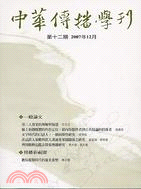 閱覽人數: 1682
閱覽人數: 1682
December
2007
No. 12
頁數:3 - 52
作者(中)
彭文正
作者(英)
Dennis Weng-Jeng Peng
關鍵詞(中)
第一人效果 ; 第二人效果 ; 第三人效果 ; 第三人效果認知
關鍵詞(英)
first-person effect ; second-person effect ; third-person effect ; third-person perception
中文摘要
從理論的角度觀之,當前用以解釋第三人效果的理論,多半僅能提供「個案式」、「條件式」或「表象式」的支持;尋求能夠系統陸地解釋第三人效果認知及行動層面的理論,是未來努力的方向。 在研究方法方面,次序效應是否促進了第三人效果,尚待更多實證的檢驗。而以認知差距預測限制媒介的方法,目前仍有其侷限性。此外,造成限制媒介行動的是「對自己的影響」、「對他人的影響」,還是「對他人和對自己影響的差距」,則需要詳加釐清。第三人效果更需要清楚地從「總體和個體」、「變動性與穩定性」、「累積陸與不可累積性」、「長效性與短效性」,以及「質化與量化」的層面進一步檢視,才能夠使這個假說愈益豐富與成熟。
英文摘要
Arguments of the third-person effect only provide partial and contingent explanations. Efforts seeking theories which can systematically explain the third-person effect across cognitional and behavioral levels are needed. Methodologically, any conclusions about whether "order effect" interferes with the third-person effect call for further examination. For example, predicting support for censorship by perceptual differences has its limitations. "Impact on self", "impact on others", or "impact differences between self and others", which could possibly result in censorship, needs to be clearly differentiated. Research on the third-person effect needs to differentiate between the following effects: micro vs. macro, alteration vs. stabilization, cumulative vs. non-cumulative, long term vs. short term, and qualitative vs. quantitative.